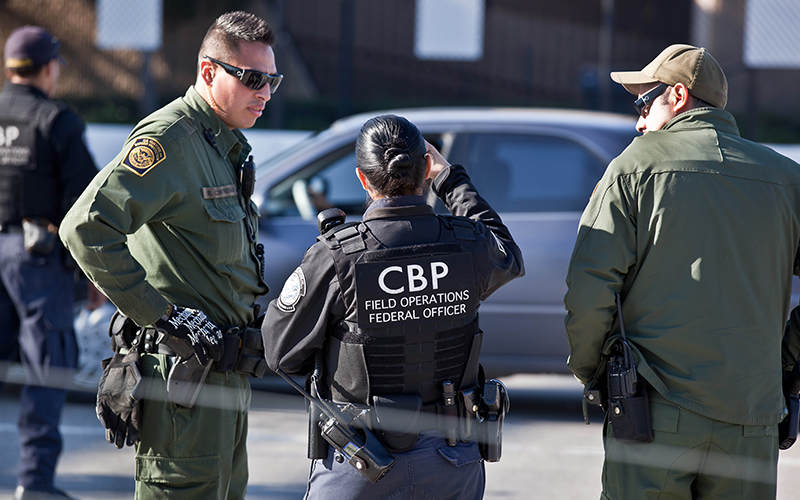
Under the Trump administration’s new policy, everyone caught illegally crossing the border will be prosecuted, which means undocumented parents will be separated from their children and held in different detention centers. (Photo by U.S. Customs and Border Protection Work Calexico via Creative Commons)
PHOENIX – The news spread like wildfire: 1,475 immigrant children missing and nowhere to be found. No records of their whereabouts, and the federal government was being singled out as the party responsible.
However, in the days after the initial news reports, more information has revealed the steps – and the multiple agencies involved – that ultimately lead to the public outcry of the past few days.
The report of the missing children made headlines after Attorney General Jeff Sessions this month announced a “100 percent prosecution” policy requiring the incarceration of all undocumented adults; under law, minors can’t accompany adults taken into federal custody. But it’s important to note these children were declared missing months before Sessions’ announcement. They either crossed the border unaccompanied or had become separated from their parents.
However, pro-immigration advocates argue the “100 percent” policy could cause unnecessary emotional trauma and potentially increase the number of children missing in the system, but officials from Customs and Border Patrol, as well as members of the Trump administration, said it will discourage people from illegally entering the country.
“We want the families to know, ‘Don’t do it.’ We don’t want to separate you, we don’t want to break up families, but we’re enforcing the laws,” Stephanie Dixon, a Border Patrol agent, said last week during a press event in Nogales. “That means you can’t come, cross here illegally – otherwise you’re going to face consequences for it.”
Although the new policy and reports of missing children have only recently drawn national attention, Abril Gallardo, communications director for Living United for Change in Arizona, says the large number of displaced children and the issue of undocumented families being separated have been major issues in border states since George W. Bush’s presidency.
Jouvin Nasseri, a California attorney who specializes in immigration law and works with cases in his state and in Arizona, said although undocumented families that were detained trying to cross illegally during the Obama presidency were allowed to stay together, the conditions they were held in were troubling.
Immigration advocates filed a series of complaints against the government, citing conditions in these centers as a threat to the health of those incarcerated. The Obama administration had the highest deportation numbers in recent history: Many of those deported already were living in the country when apprehended, regardless of whether they had children or family residing in the U.S.
“It’s great to see that what is happening at the border is bringing national attention to an issue that we have been experiencing for many years,” Living United’s Gallardo said. “What’s important about this moment is that what’s happening is putting a real face to an issue that has been politicized so much.”
Nasseri agreed that recent news coverage may bring awareness to major immigration issues, but the treatment of undocumented immigrants deters those who already are in the U.S. from petitioning to gain proper documentation. The current political climate and strategy undertaken by the federal government is creating a major distrust of the court system, he said.
“It’s a shame the way the Trump administration is handling these cases now. … I’m getting a lot of people who are good, hardworking people that are getting deported,” he added. “It’s creating this effect of people saying, ‘Why are we presenting ourselves if we know the Trump administration is doing this?'”
It isn’t clear what, if anything, will be done to track down the 1,475 undocumented children who are unaccounted for. Some of them could be living with undocumented family members, moved away with the adults who sponsored their entry into the country, or did not attend their court hearings, but the likelihood of these possibilities is unknown.
Although Border Patrol is attempting to better their methods of keeping track of those who cross the border, the task has become increasingly difficult with the rising number of Central American immigrants trying to cross – primarily from Honduras, El Salvador and Guatemala – and a shortage of agents. The most the public can do, Gallardo said, is continue demanding change from the government.
“This speaks to any mom and any dad across party lines, and that’s powerful … we hope that it opens the minds and hearts of people who have remained silent and inactive when it comes to immigration,” Gallardo said.
Connect with us on Facebook.